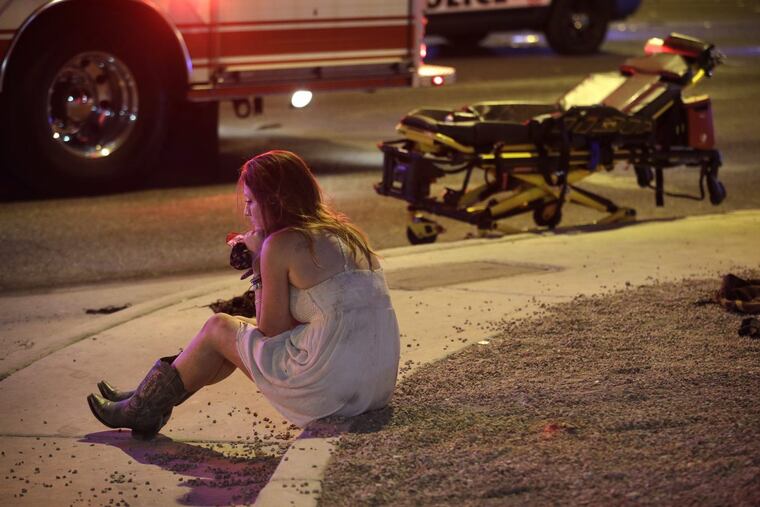A therapist's advice for coping with the Las Vegas shooting
Understand what happened, but don't live in it. Avoid soaking up all the gruesome details by immersing yourself in non-stop viewing of the news.

I personally have never experienced trauma related to gun violence. But, the emotion I feel each time this happens is hopelessness. Our society has adopted a certain performance mechanism to these acts of terror—we awaken with shock and horror, but quickly bury these emotions. Instead, we choose to debate Second Amendment rights, question forensic profiling, send "Thoughts and Prayers" press releases, and eventually, we forget. As a member of society, there is little I can do besides civic engagement or voting to change the laws. As a therapist though, I can use my clinical skills to ask those around me what it would be like if they allowed themselves to deeply feel their emotions and offer some tips for healthy reactions. Those tips include:
Name your emotions. There could be a whole host of things you are feeling: shock, sadness, regret, guilt, anger, weakness, numbness, or resignation. Do not just label these emotions in your mind. Put them on paper. By putting your feelings on paper, they become more than just synapses firing off your mind. They have depth and physical existence. Put them in a place where you can come back to them in a few weeks or months and reflect.
Accept your emotions. They are going to hurt and you might not like how they feel, but it is important not to push them away. Many people will try to distract themselves from the pain of unspeakable tragedy by using avoidance behaviors. This could be something like drinking alcohol or abusing substances or something more benign like binge-watching four hours of The Office on Netflix. Some of the most difficult avoidance behaviors to spot are those that seem like you are still invested in the hurt. I see so many people engage in divisive Facebook debates after events like these. The debates I read are rarely civil and can often result in "un-friending." I believe this is because the individuals involved are avoiding feeling the difficult emotions that accompany unanswerable questions; Why did people like me have to die? Why am I still here? What if next time it is me? Policy debates are important and they have their place, but they are an act of emotional avoidance in the first few days.
Understand what happened, but don't live in it. There is little to gain by soaking up all the gruesome details by immersing yourself in non-stop viewing of the news. This behavior can reinforce feelings of grief and depression, it isolates you from others, and it can traumatize you remotely. Stick to web articles and only read what you need to know.
Connect with your community. This should be a topic among your friends, professional organizations, and religious communities. Talk with each of them and share your feelings. Listen to their feelings. Determine whether there is a way you can honor those who are gone.
Adam Goodman, JD, MFT, is a staff therapist at the Council for Relationships, a Philadelphia-based nonprofit organization whose mission is to help people from all walks of life improve their important relationships by providing exemplary therapy, educating and training clinicians in the family systems approach, and advancing the behavioral health field through research. This post was originally published on councilforrelationships.org.